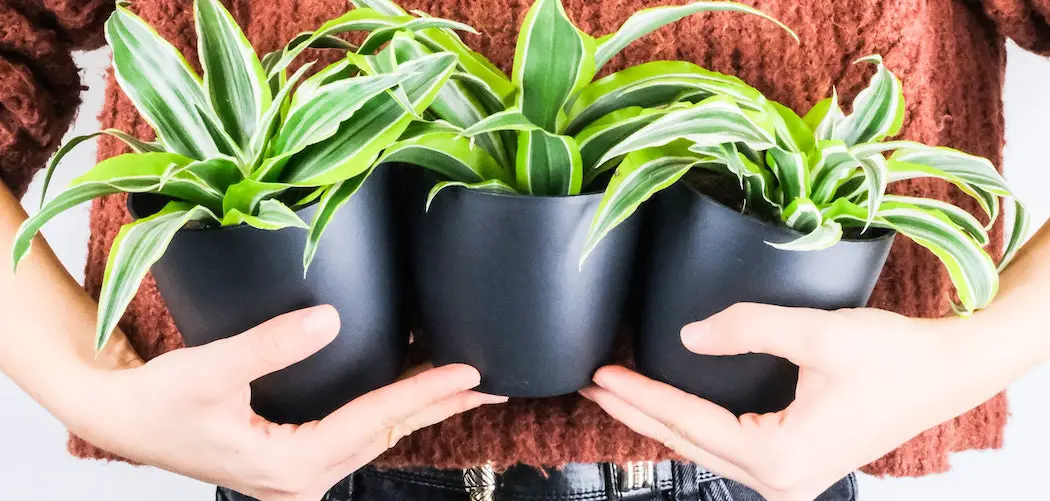Have you ever wondered why we keep plants inside?
It’s work, it’s sometimes disappointing because they die, and it can be frustrating trying to deal with plants that seem sickly no matter what we do. However, we get a lot of pleasure from plants, and most people have at least a few.
Why are houseplants important? 13 reasons you should know about.
Houseplants are important because they provide a range of benefits to humans. As well as looking good, they can make us feel good. Plants help to purify the air we breathe, reduce stress levels, boost our productivity, give us oxygen, and possibly even improve our focus on tasks. They can also help with humidity levels, and make it easier to breathe indoors.
Here are 13 good reasons that justify your hobby of caring for plants:
1. They Look Great
There is absolutely no denying that having plants in a room brightens the room up. Plants come in every shape and size imaginable, so you should have no problem finding a plant that will look amazing in your home or office.
Plants make indoor spaces feel welcoming and natural, and they can soften the sterility of an indoor environment very well.
Think about how it feels to step into a home that is full of plants. What do you think and feel about that home?
2. They Make Us Feel Better
Many studies have shown that plants boost our moods just by existing. They make us happy.
Whether that’s because we associate them with our natural environment or because we feel satisfaction at having kept them alive – or a combination plus other reasons – it’s not clear.
However, plants unquestionably do make us feel better.
They elevate bad moods into better ones, and make us happier. That’s a very good reason to have houseplants!
3. They Can Improve Mental Health
Rather than just boosting your mood, it is believed that plants can have a direct positive effect on mental health.
They are thought to lower anxiety and fatigue, which can both have a negative impact on your mental health.
Why plants boost mental health isn’t really clear.
It may be that because we associate them with nature, they make us feel safer and more secure, distracting us from some of the difficulties we face in the modern world.
It may be something to do with the simplicity of their lives, or it might be because of the physical benefits – which we will discuss shortly.
Whatever it is, it seems clear that keeping plants around makes us feel better about ourselves and the world in general.
When you are going through a difficult time, plants can ease your suffering.
4. They Reduce Stress
Yes, plants reduce stress. This might not surprise you after the our previous point about mental health, but it is clear that having plants in a room can make you feel less stressed out.
Spending time with plants, talking to them and caring for them has been proven to lower stress levels and make people feel more relaxed.
If you’re suffering from difficulties in your life, you might want to consider adding a few plants to your home or workspace if possible.
They probably won’t revolutionize your experience day to day, but they may help you to feel more relaxed and easier about your problems.
5. They Boost Our Productivity
 This might sound bizarre, but multiple studies have found that having plants in the room can make us more productive. Why?
This might sound bizarre, but multiple studies have found that having plants in the room can make us more productive. Why?
It isn’t entirely clear. Some of it may be to do with the physical improvements that they bring to the space – by improving things like air quality and oxygen levels, perhaps they increase our ability to focus? That can’t be all of it, however.
It’s possible that because we feel like we are in our natural environment, our brain is more capable of handling information because it feels comfier, more at home.
With plants in the room, the brain isn’t constantly trying to process the unnatural sterility of a place without plants (not something found in the normal world!) and so it can better focus on other things.
Otherwise, it isn’t really clear why plants make us more productive, but it seems they do.
If you’re studying for a big exam, put a plant on your desk!
If you’ve got an essay to get through, put a plant on your desk!
You’ve got little to lose and much to gain!
6. They Improve Humidity Levels
If your home is very dry, plants will help out with that, too.
Plants expel a lot of humidity through their leaves, and so they can increase the humidity in the air.
That might not sound like a good thing to you, but humid air is easier to breathe, and can help with breathing conditions such as asthma.
As a person with asthma, I am particularly passionate about this topic, so if you’re curious, check out this article that I wrote about plants and asthma, some facts are truly surprising!
Plants expel up to 97% of the water they intake, so having a few plants around can make your home a lot less dry.
7. They Improve Oxygen Levels
We all know that plants intake carbon dioxide and output oxygen, so having plants in a room improves the amount of oxygen that is available to you.
That might be a contributing factor to some of the mental benefits we see plants offering, but it may also make you feel better physically.
More about this topic in this article here, where I describe exactly how much oxygen plants produce and I include 5 plants that give the highest levels of oxygen.
8. They Filter Toxins Out Of The Air
Plants are well known for improving the quality of air, as well as the quantity of oxygen.
Plants will filter out pollutants and toxins that you might otherwise be breathing in.
It’s thought that they will pick up and filter out chemicals released by furniture and other unnatural materials.
Having fewer irritants in the air could help people feel better and more settled, so plants are a key part of making your home comfortable.
9. Some Release Oxygen At Night
If you struggle to sleep, you might want to choose plants that help to increase the amount of oxygen in your bedroom at night.
Most plants don’t do give oxygen at night – they take in oxygen instead, as we do.
However, some plants such as Bromeliads and Succulents take in carbon dioxide and release oxygen.
They are perfect plants for the bedroom!
I talk more about sleeping with plants in the bedroom in this article, where I also include more plants that give oxygen at night.
10. They May Help Cure Illnesses
Some studies have looked at whether plants can increase our recovery rate when ill, and it’s thought that they can.
This may be because of their ability to improve air quality, or it may be for other reasons, but it seems that plants can help us to get better faster.
Sore throats and coughs are particularly improved by having plants around, and people suffer less from dry skin, too – possibly due to increased humidity.
Whatever the reason, it seems clear that physical health is improved by the presence of plants.
11. They Increase Pain Tolerance
Hospitals have observed the effect of adding plants to patients’ rooms, and it has been suggested that plants can also increase our pain tolerance.
This can promote faster healing and make it an easier process for everyone.
Next time a loved one is in hospital, consider sending a pot plant instead of cut flowers – it may help them feel better!
The reason behind this fact is not yet clear, but we know it is not just the distraction – plants seem to do something that makes us more willing to put up with pain, and other visual distractions do not have the same effect.
12. They Are Therapeutic
Caring for plants is well known to be therapeutic. It can help people of all ages to feel empowered and happier.
Caring for plants makes us become more aware of our influence on the environment and understand how we can have an impact on the natural world.
We also feel pleased by the responsibility we have upheld.
Plant care is straightforward, but it can often be surprisingly challenging, so success is very rewarding and often makes us feel happy
There is also something reassuring about the routine of caring for plants that can make us feel settled and comfortable about our lives.
Watering plants, trimming their leaves, or changing their soil can even be considered a form of meditation because it allows you to forget about everything else and just be present in the moment, caring for your plant.
So, next time you water your plants, just focus on them and on the process you’re following to maximize this benefit. Breathe deeply and allow yourself to be calmed by the motions.
13. They Reduce Noise Levels
You might be surprised to learn that plants can also make an environment quieter, but it is true.
Plants simply absorb sound into their stems, trunks, leaves, etc.
A road lined with trees will cause far less traffic noise than one without trees.
Large plants are better at absorbing noise, but all plants will do so to an extent.
Plants also refract sound, reducing echoes and making spaces quieter in that way. This can help to make the atmosphere calmer.
In hospitals and offices, which have many hard, echoing surfaces, sound refraction is particularly effective, but it can be helpful in the home too.
Try putting plants in spaces with lots of hard surfaces, and you will find them more soothing. Plants make indoor environments calmer.
Final Thoughts
It seems that plants benefit us both physically and mentally.
- They can make our air better
- They help us recover from injuries and illnesses
- They improve our ability to work and focus.
- They make us feel better emotionally and mentally, perhaps partially as a result of the physical benefits.
We don’t really understand why plants have these effects yet, but it’s clear that they help us in many ways, and houseplants are very important to our well-being!
References
- A study from NCBI shows that indoor plants reduce the level of stress in young adults and promote natural feelings, such as calm and comfort.
- An ISHS study shows the pain tolerance effects of ornamental plants in a simulated hospital room.

